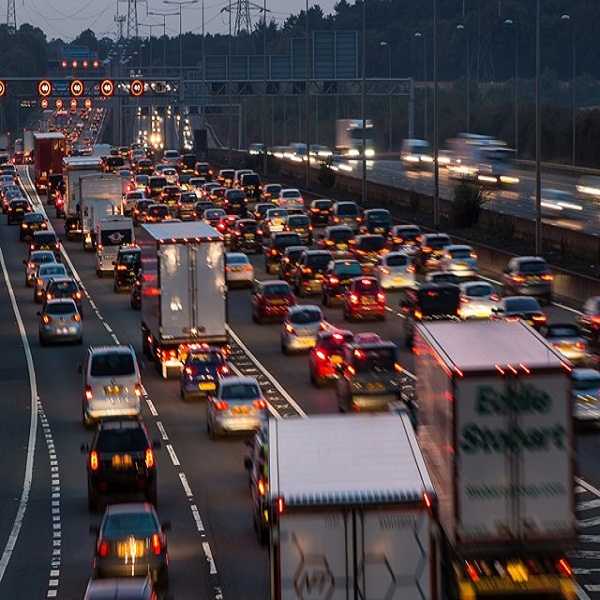Following an inquiry, the Commons’ Transport Select Committee (TSC) has concluded that the government’s rollout of all-lane-running smart motorways should be paused on account of safety concerns.
A ‘smart motorway’ is intended to alleviate road congestion by utilising live traffic management, such as by opening up the hard shoulder as a live traffic lane. Sections of the M1, M4-6, M25, M42 and M62 can operate as smart motorways. However, serious safety concerns have been raised following fatal incidents involving broken-down vehicles being stranded in live lanes and subsequently struck from behind by a fast-moving vehicle.
Radar-based ‘Stopped Vehicle Detection’ systems have been installed at roadsides to detect stranded vehicles and alert operators to dispatch personnel and activate lane closure signs. However, analysis by Highways England earlier this year found that less than five per cent of England’s smart motorway network had installed the safety systems. After a coroner concluded that smart motorways “present an ongoing risk of future deaths”, the transport secretary told the TSC that installation would be sped up.
However, pressure has continued to be applied on the government to halt the rollout of smart motorways and permanently reinstate the hard shoulder for emergency relief. Earlier this week, demonstrators protesting smart motorways marched to Parliament carrying dozens of coffins representing the people killed in smart motorway collisions.
Now, the TSC has criticised the government’s March 2020 decision that all future smart motorways would be all-lane-running versions (with the hard shoulder permanently used as a live traffic lane) as “premature”. It urged the government to consider alternative options for enhancing motorway capacity.
The report, Rollout and Safety of Smart Motorways, said: “The government and National Highways should pause the rollout of new all-lane-running schemes until five years of safety and economic data is available for every all-lane-running scheme introduced before 2020 and the implementation of the safety improvements in the government’s action plan has been independently evaluated.”
MPs concluded that safety risks on all-lane-running smart motorways should have been addressed by the government and National Highways before the motorway schemes were rolled out. Safety improvements to all-lane-running smart motorways should have been delivered in a timely fashion; instead, promises to prioritise improvements were broken.
The report recommended that emergency refuge areas are retrofitted to existing all-lane-running motorways to make them 0.75 miles (1.2km) apart “where physically possible” and a maximum of one mile (1.6km) apart.
Committee chair Huw Merriman said: “Looking at the available evidence, smart motorways do appear to be safer than conventional motorways even once the hard shoulder is removed. However, this evidence is also open to question. Only 29 miles [47km] of these all-lane-running smart motorways have operated for over five years.
“It therefore feels too soon, and uncertain, to use this as an evidence base to remove the hard shoulder from swathes of our motorway network.”
A Department for Transport spokesperson said: “We welcome the [TSC’s] scrutiny and will now consider its recommendations in detail, providing a formal response in due course. This is a serious piece of work which we will engage with closely in the months ahead.
“We’re pleased that the TSC recognises that reinstating the hard shoulder on all all-lane-running motorways could put more drivers and passengers at risk of death and serious injury and that we’re right to focus on upgrading their safety, as the secretary of state committed to doing when he became transport secretary.
“We recognise that improvements have not always been made as quickly as they could have been in the past, but as the committee has set out, the transport secretary is absolutely committed to making smart motorways as safe as possible, including committing £500m on upgrades and the faster rollout of Stopped Vehicle Detection.”
Source: E&T










